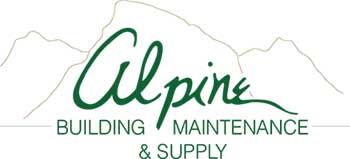Going Green with Church Cleaning Services
Have you ever wondered what people did to clean their homes and workplaces before the invention of harsh chemical cleaners? Typically the go-to chemicals for cleaning mold are ammonia or bleach-based. But for many of us, these chemicals are just too harsh for our living/working environment. With churches, you have a variety of people, poor and well-to-do, children, the elderly, and all ages in-between. Keeping your church clean will keep your parishioners healthy and happy as well, not to mention making the experience all the more enjoyable for everyone.

Cons of Chemicals
Let’s start with ammonia. Ammonia has been used for centuries. Originally a distillate of human urine that was used as an oxidizer, ammonia is a base that not only cleans but also disinfects. It is also a harsh chemical when exposed to the skin and some surfaces. Perhaps the biggest drawback is the horrible smell. The fumes can burn the lungs, damage soft tissue membranes, and accidental contact with the eyes can result in blindness!
Bleach is often a main ingredient in mold remediation solutions. It is a liquid form of sodium hypochlorite, which is a type of salt, resulting from a chemical reaction between an acid and a base. The result is a highly reactive oxidizer, yet the reaction you might get from bleach and other substances could very likely produce a deadly poisonous gas. Depending on the substance bleach is reacting to, chlorine gas can be released in the chemical reaction. Through special equipment, chlorine gas is used in water purification on a civil and industrial level, but that is only by highly trained individuals possessing safeguards and safety equipment to handle this deadly and volatile chemical.
Chlorine gas was banned by the international community due to its cruel and deadly use in World War One as a weapon of mass destruction. It’s a wonder we can accidentally come by the same chemical reaction if we don’t know what we are doing! Though an effective cleaner, bleach is also highly corrosive on certain substances. It can dry out wood, remove protective coatings, and it is very dangerous when it comes into contact with soft tissue, such as mucous membranes or even your skin.
Depending on accidental misuse of bleach, exposure to fumes produced by bleach can even lead to congestive heart failure and pulmonary damage. It isn’t just damaging your clothes that you need to be concerned about, which is why RMR Solutions has a variety of cleaners which are bleach free.
Is it any wonder many people are not only conscious of their sensitivity to these chemicals, but would prefer to clean with natural cleaners?
Going Natural
Just because a cleaner is considered natural doesn’t mean it is wimpy. Essential oils and other organic cleaners have been used for centuries to clean and disinfect. Not only are they safer for people to use than harsh, caustic chemicals such as bleach or ammonia, they are typically gentler on surfaces, from fabric to wood and yes, even your skin. The really interesting thing about natural cleaners is they clean amazingly well and once something is cleaned they smell amazing!
An organic cleaner which uses essential oils extracted from thyme, rosemary, lemongrass and a variety of other natural ingredients can make the experience of cleaning a pleasure.
Natural cleaners are also sustainable, since they come from organic, renewable resources and are sourced from 100% organic plant and environmentally friendly ingredients.
The Bottom Line
If natural cleaners are so great, you might be wondering why anyone would choose to use bleach or ammonia? The answer is quite simple. Cost. Bleach and ammonia are generally cheaper than natural cleaners or organic cleaners. But considering the benefits and elimination of hazards from your church it is really an expense you should consider. Contact us if you are interested in learning more about using organic cleaners for your church cleaning needs!
